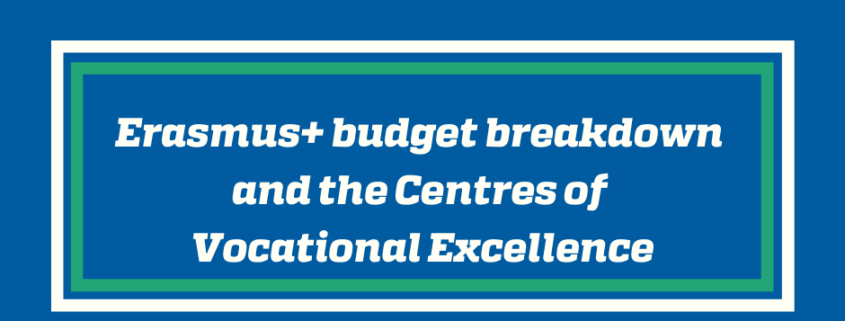Written question to the European Commission
The content of and actions financed by the future Erasmus+ programme are currently being discussed as part of the ongoing interinstitutional negotiations. The Erasmus+ budget breakdown is strongly linked to the future agreement on the 2021-2027 multiannual financial framework. However, the Commission already announced its aim to create 50 Centres of Vocational Excellence (CoVEs) in its recent communication on achieving the European Education Area by 2025 (COM(2020)0625). The creation of these CoVEs is a Commission initiative, which has not yet been discussed during the interinstitutional negotiations and for which the budget (within the Erasmus+ budget) has not yet been decided.
1. Since it does not seem to be possible to double the Erasmus+ budget, as initially proposed by the Commission, what budget scenario is the basis for the funding of these 50 CoVEs?
2. More generally, how can the Commission announce the creation of so many CoVEs without having any certainty about the future programme’s budget and its breakdown?
3. How does it intend to ensure sustainable and stable funding for the existing CoVEs?
Answer given by Commissioner Gabriel on behalf of the European Commission
The inclusion of the Centres of Vocational Excellence in the communication on achieving the European Education Area by 2025 is in line with the Commission’s proposal of 30 May 2018 for a regulation establishing the future Erasmus+ programme (2021-2027). This proposal includes the Centres of Vocational Excellence initiative, as part of the Partnerships for Excellence.
The number of 50 Centres mentioned in both the communication on achieving the European Education Area and the communication on the European Skills Agenda should be seen as part of a wider modernisation priority for vocational education and training (VET) as foreseen in the Commission proposal for a Council Recommendation on VET, to which other funding sources (national and European) will also contribute.
The funding of the Centres is subject to the adoption of the future Erasmus+ programme and the application of its relevant procedures.
In light of the political agreement reached on the outcome of the negotiations for the future Erasmus+ programme, the Commission is confident that it will be able to implement the Centres as proposed, and to provide sustainable and stable funding to the initiative throughout the programming period.
Moreover, at the moment of application for Erasmus+ funding, each project on Vocational Excellence must present its plans for self-sustainability post EU funding.





Leave a Reply
Want to join the discussion?Feel free to contribute!